Break Free From Porn Addiction Forever!
.avif)



Real People. Real Freedom. Real Change.
Stop Seeing Yourself as Someone "Trying to Quit"
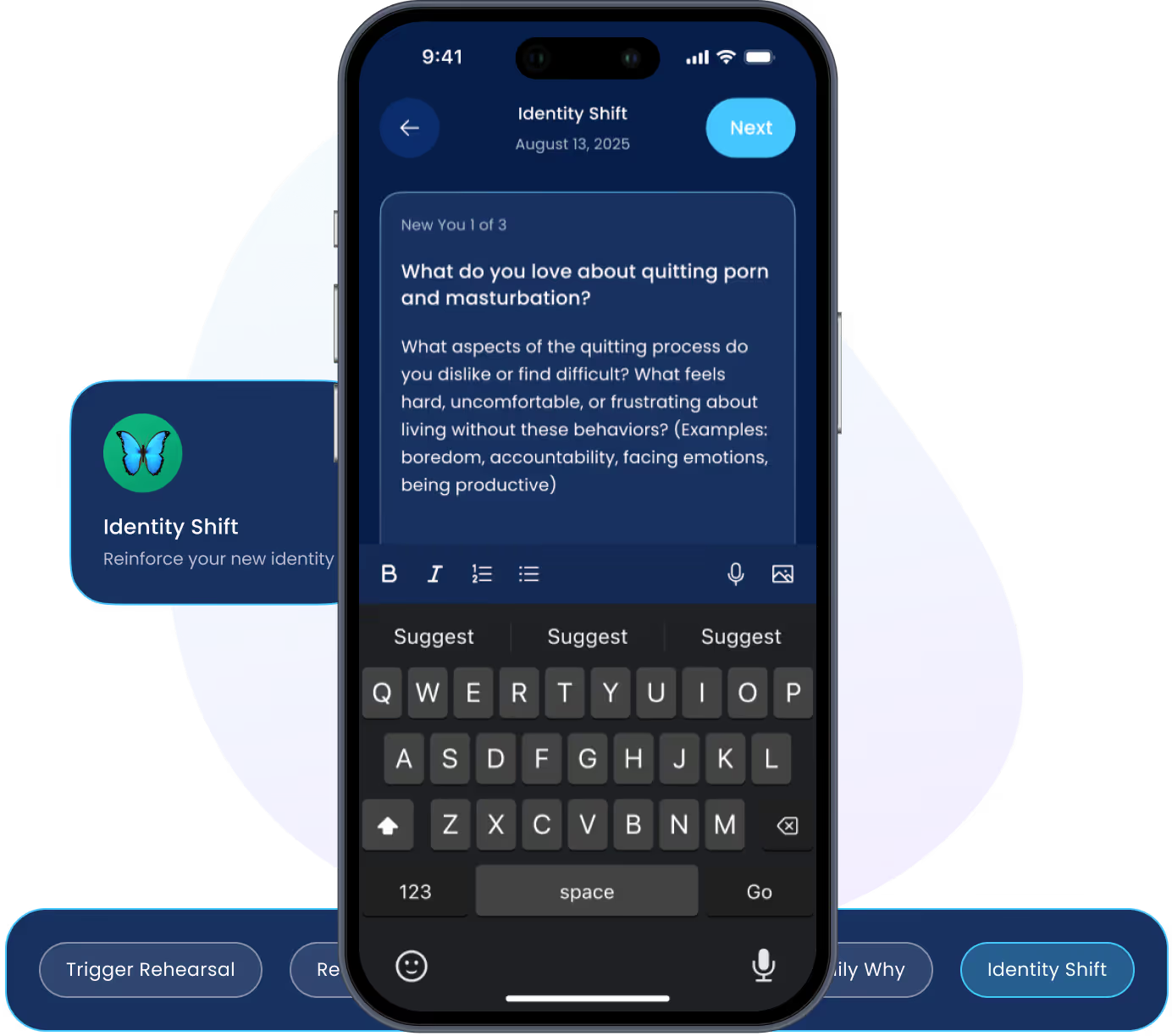
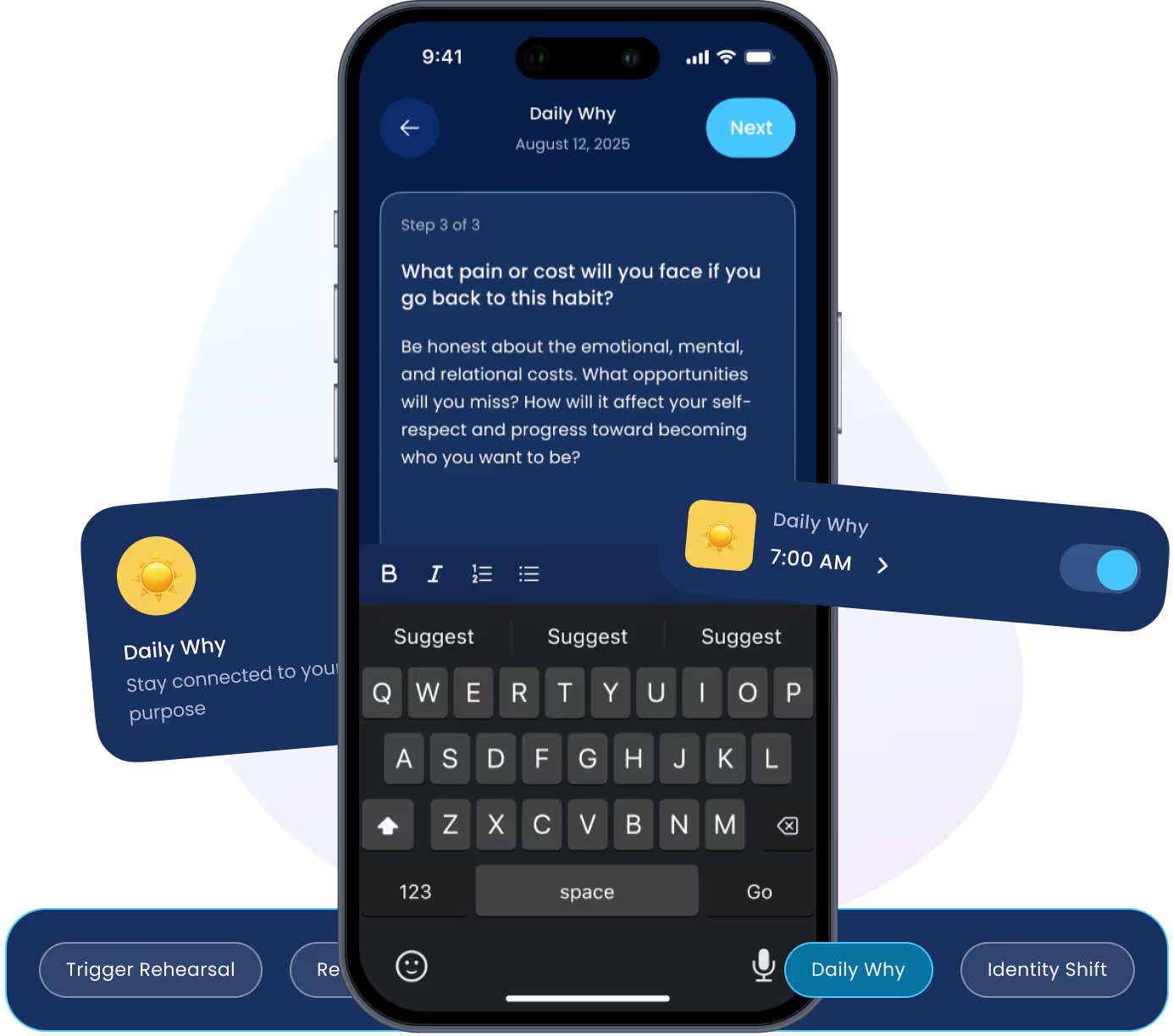
Stay Connected to your why
Never Rely on Willpower
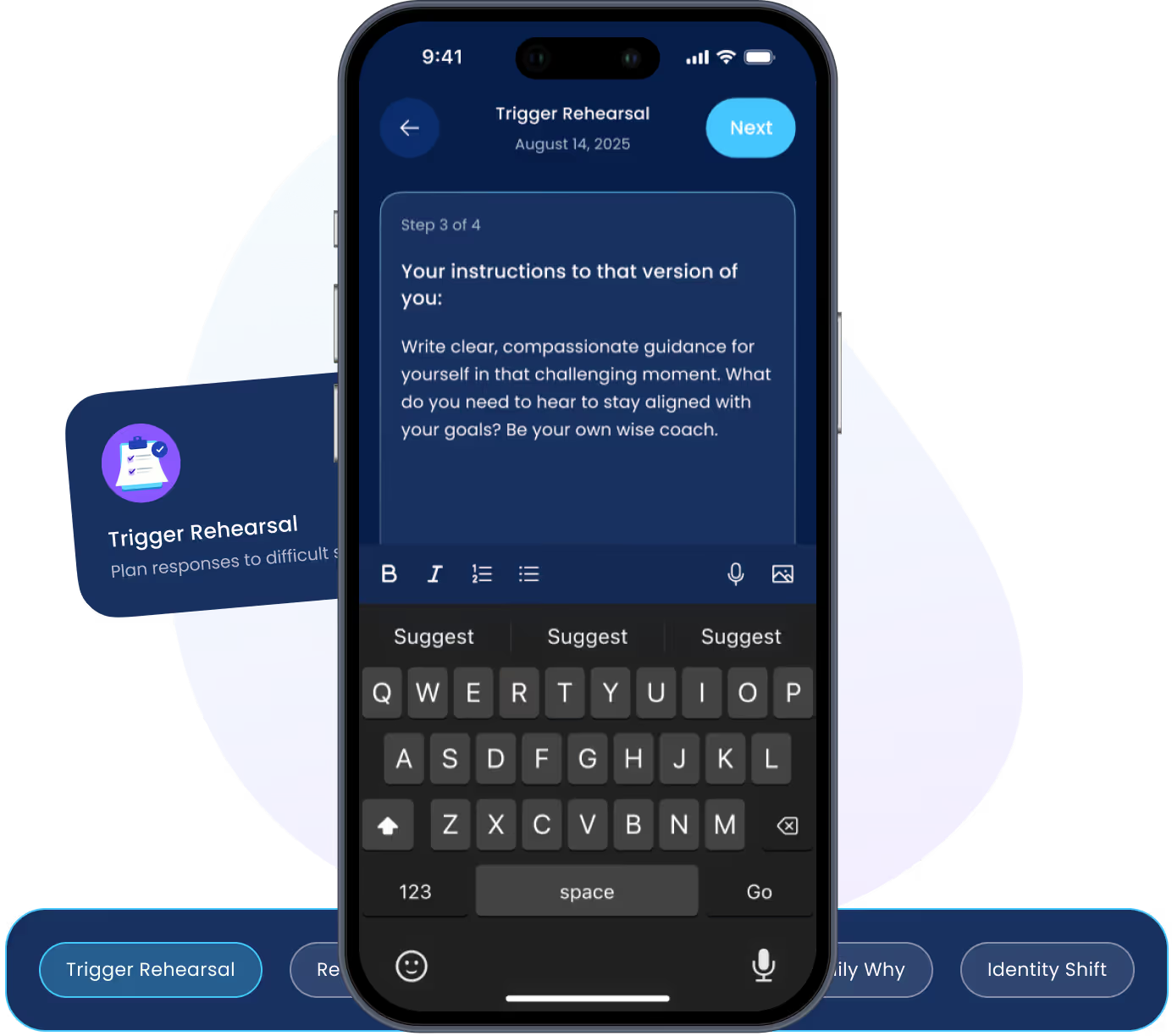
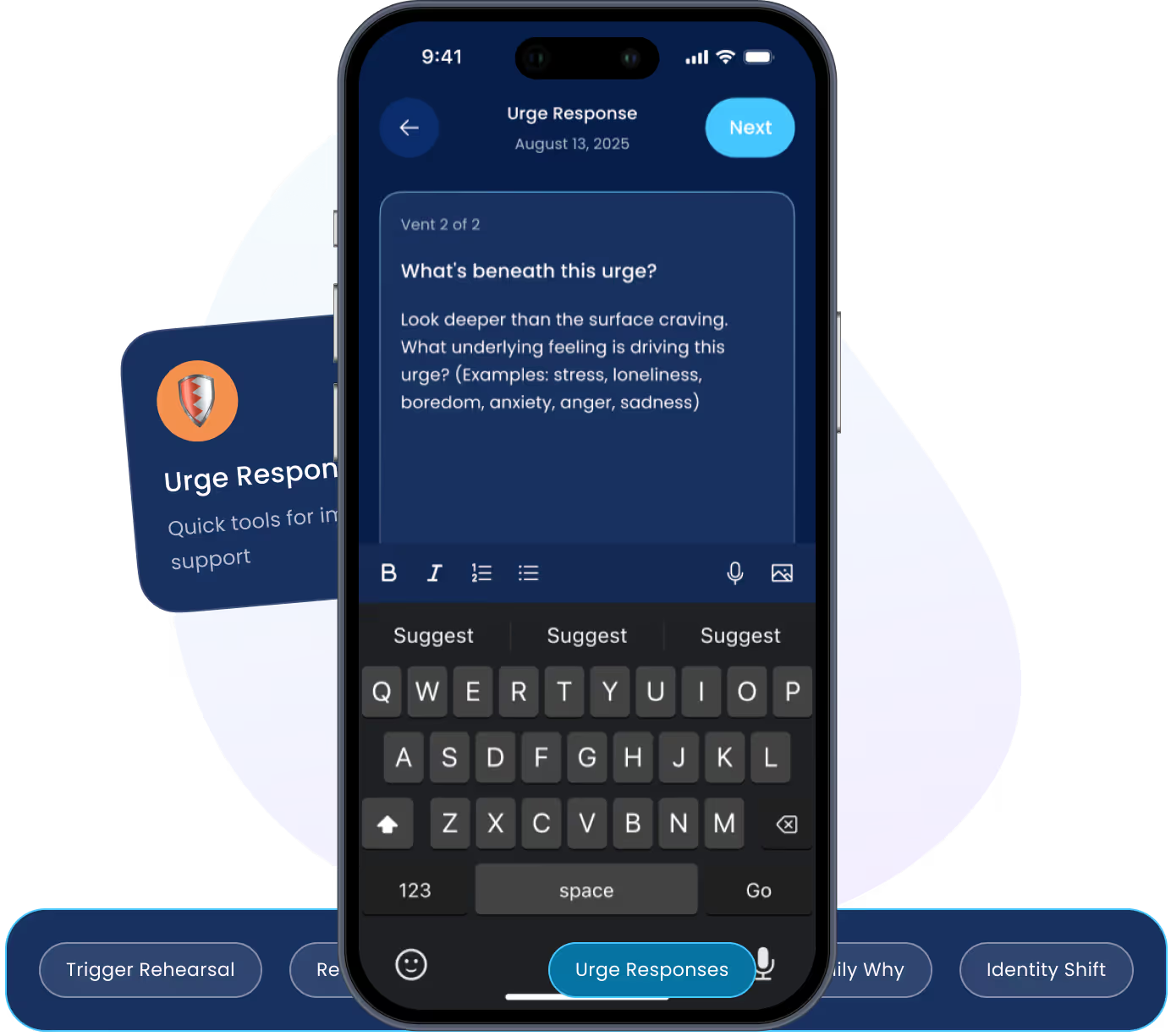
Stop the Cycle Before It Starts
Turn Every Setback Into a Breakthrough
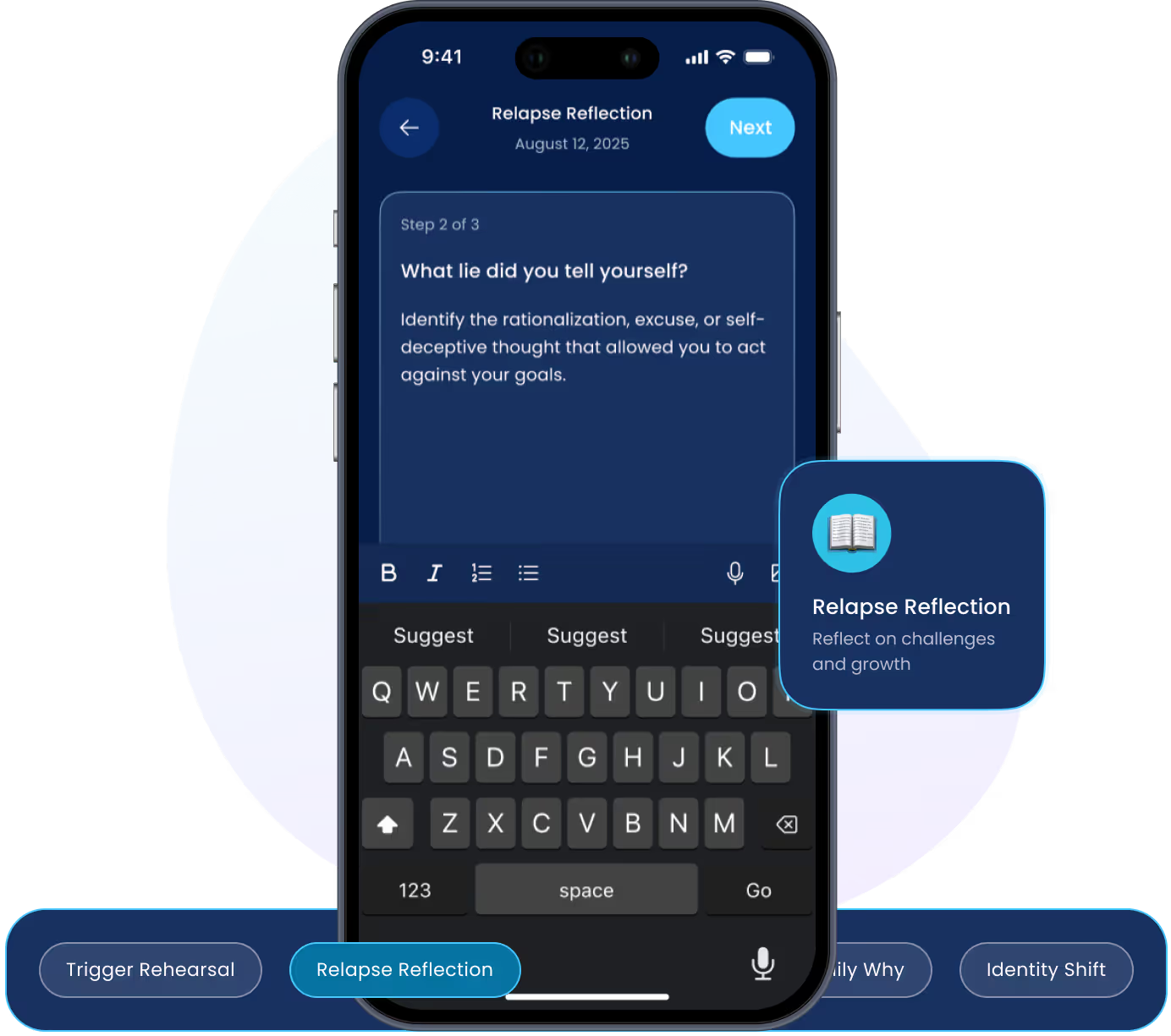
Get Your Life Back

Your Questions Answered
Understanding how cognitive change creates lasting recovery
Most recovery approaches target the behavior (blockers) or rely on willpower (accountability). Both fail because they don't address why you're drawn to the behavior in the first place. Rewire works on the thought patterns and belief systems that precede actions. When you change how you think in triggering moments, behavioral change follows naturally. It's harder work than installing a blocker, but it creates lasting change instead of temporary restraint.
The journals aren't just "writing about your feelings." They're structured cognitive exercises that help you examine and rewrite the specific thought patterns that lead to compulsive behavior. When an urge hits, you have internal scripts running: "Just this once," "I deserve this," "No one will know." The journals help you identify those scripts, understand why they're there, and deliberately create new ones. It's the same principle therapists use, adapted for self-directed work.
Most users report shifts in how they respond to urges within 2-4 weeks of consistent daily journaling. Deeper identity transformation—genuinely seeing yourself differently—typically develops over 2-3 months. This isn't a quick fix. It's cognitive restructuring work that builds over time. But unlike willpower-based approaches that eventually fail, the changes you make at the thought pattern level tend to stick.
Relapses are part of the process, not proof of failure. The Relapse Reflection journal turns setbacks into learning opportunities by helping you analyze the exact thoughts that preceded the behavior. Each relapse gives you data about your mental scripts, which you can then rewrite. The goal isn't perfection—it's progressive understanding of your thought patterns and consistent improvement in how you respond.
Yes. The approach is based on cognitive behavioral therapy (CBT) principles, which have extensive research support for changing unwanted behaviors. CBT works by identifying and modifying the thought patterns that drive behaviors. Rewire adapts these clinical principles into guided journaling exercises for self-directed recovery work. While the app format is newer, the underlying methodology has decades of evidence.
Absolutely. Rewire is designed to complement professional therapy, 12-step programs, support groups, and other recovery resources. Many users find that the guided journaling deepens the work they're doing in therapy by providing daily tools to practice cognitive restructuring between sessions. The app doesn't replace professional help—it extends it into your everyday life. If you're working with a therapist, you can even share your journal entries with them to enhance your sessions.
Ready to Address What's Actually Driving This?





